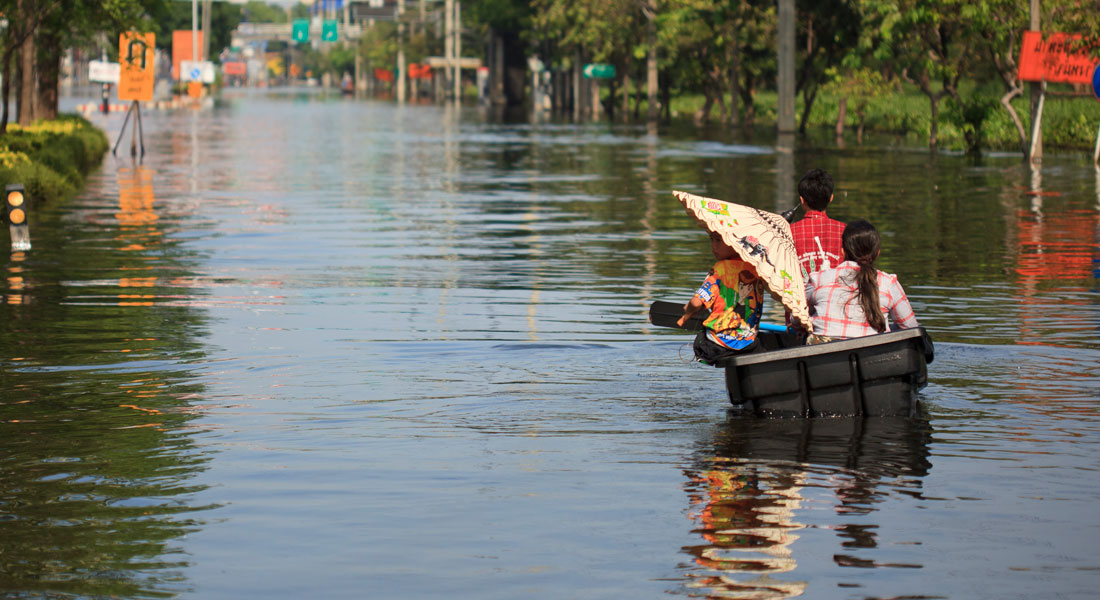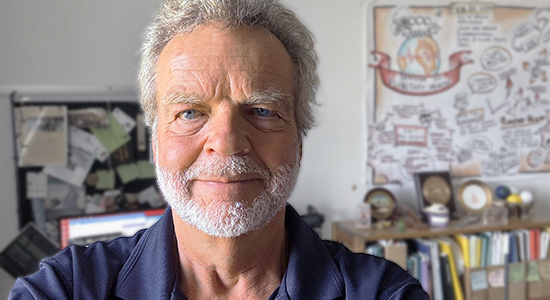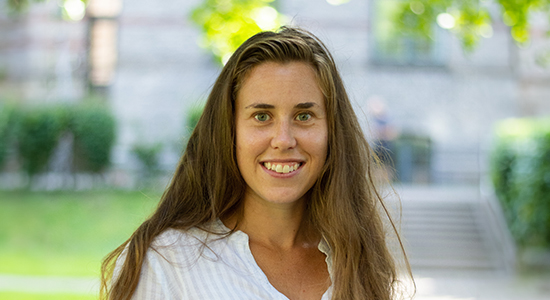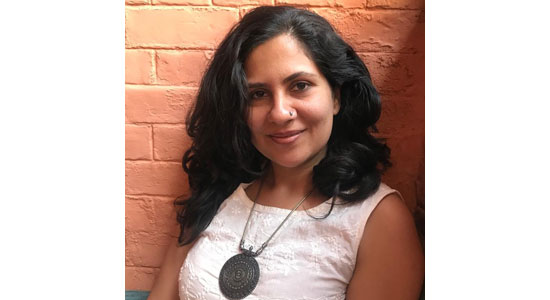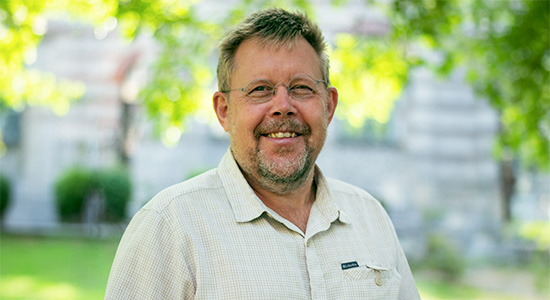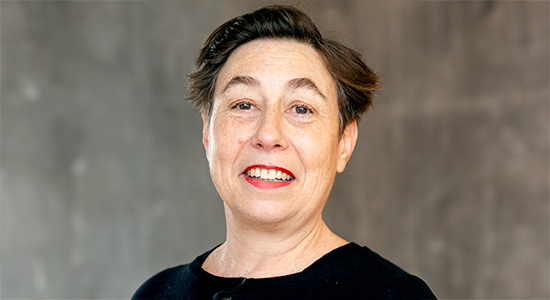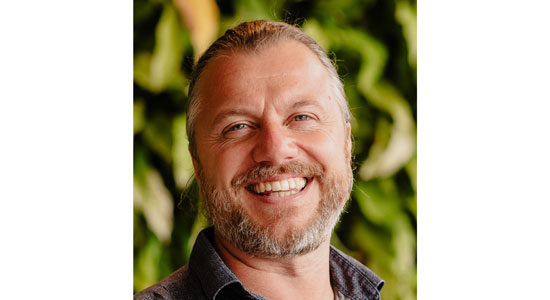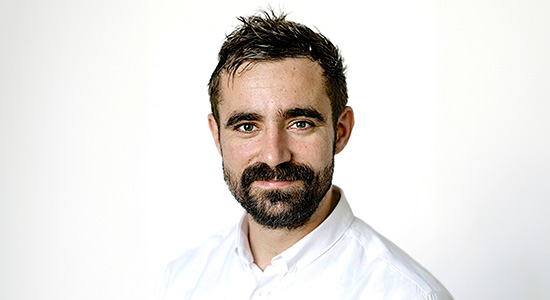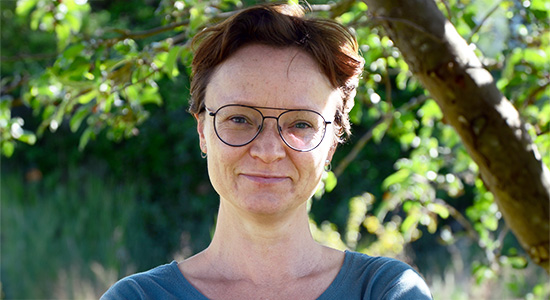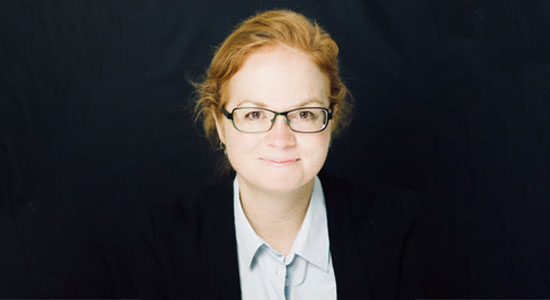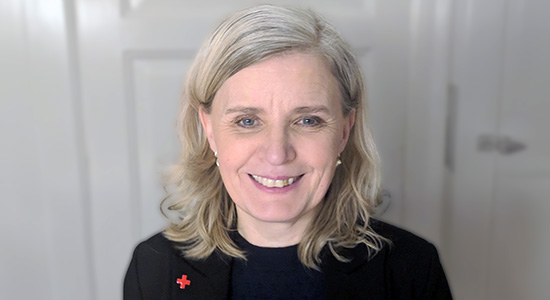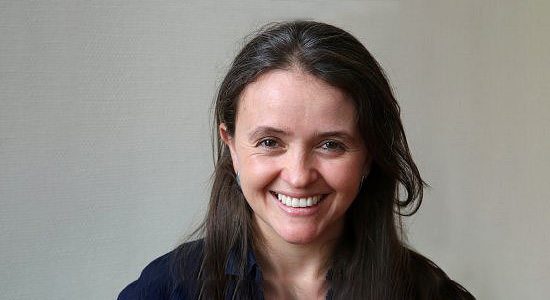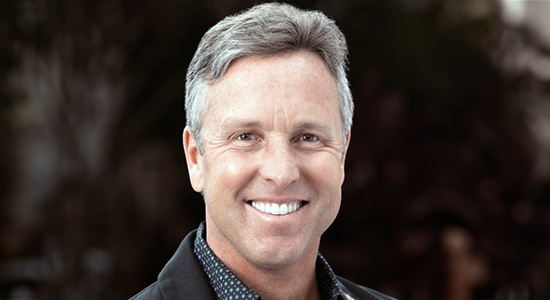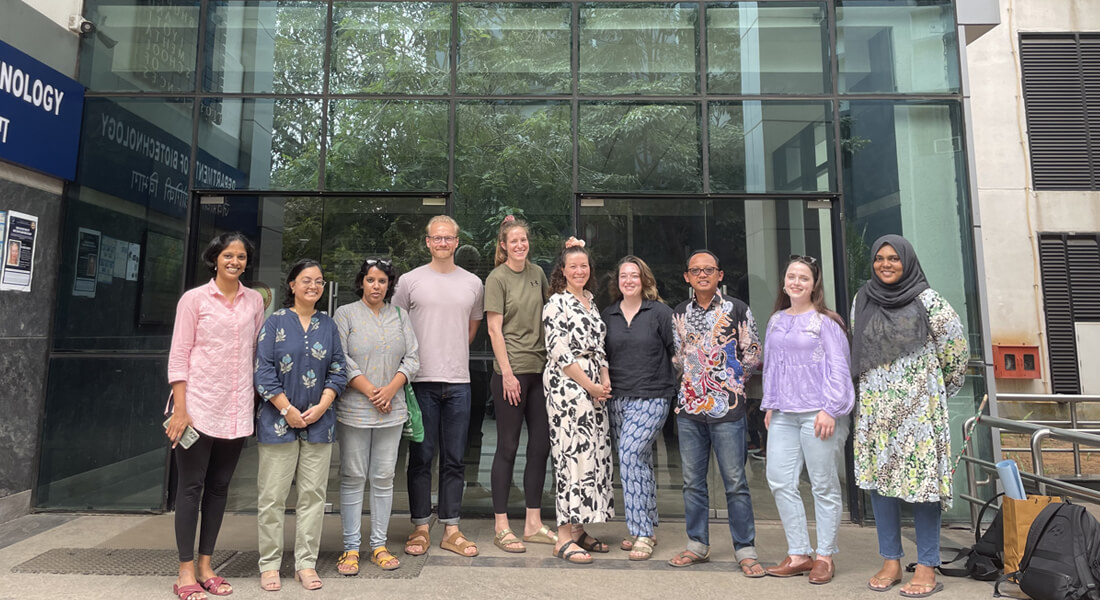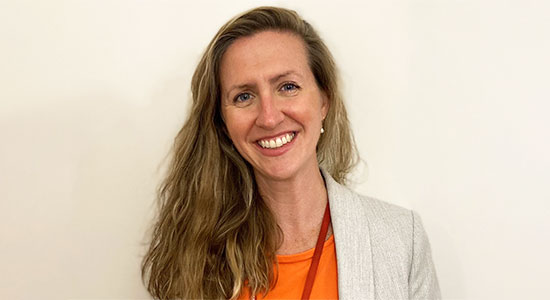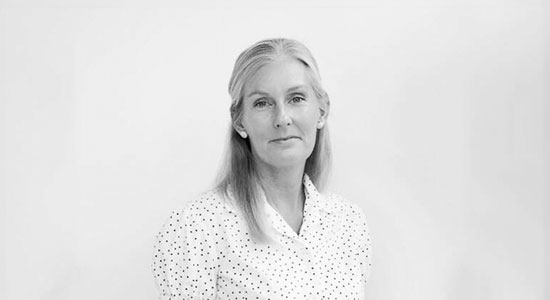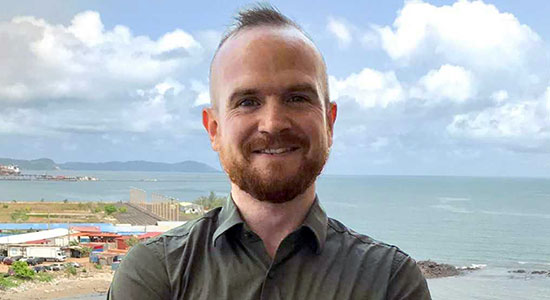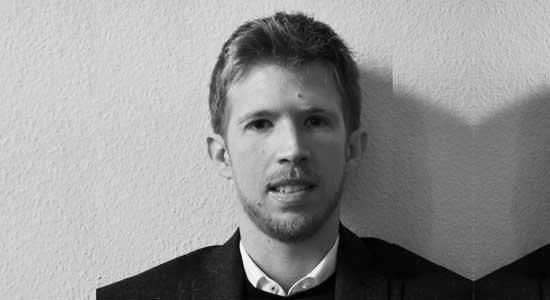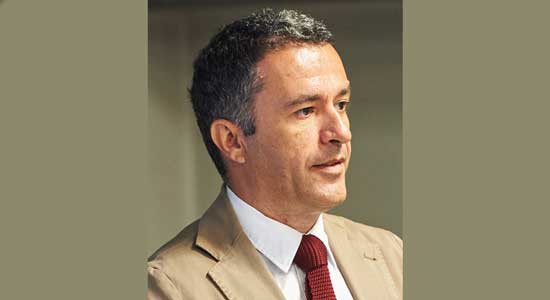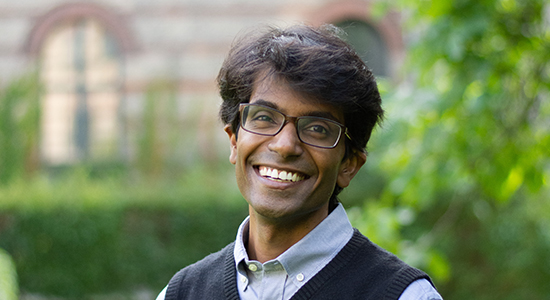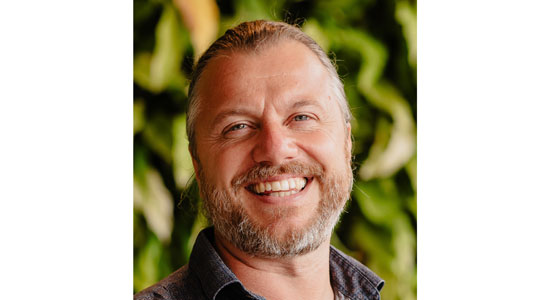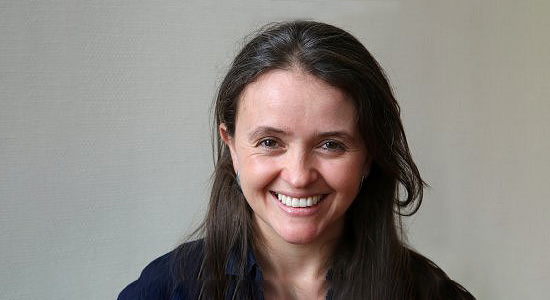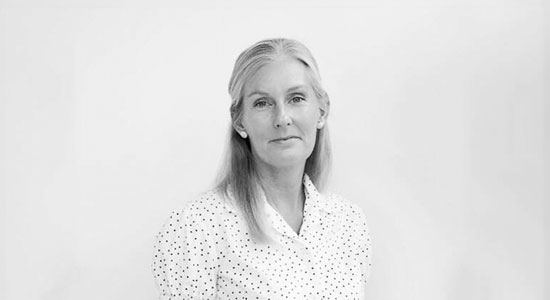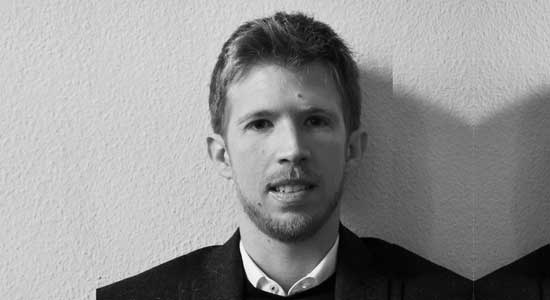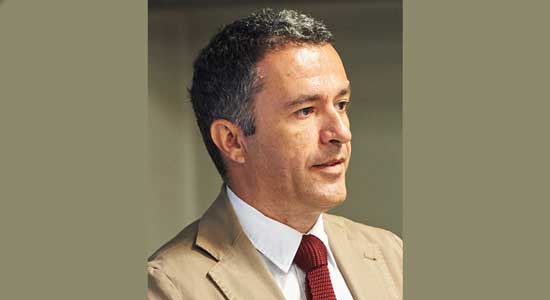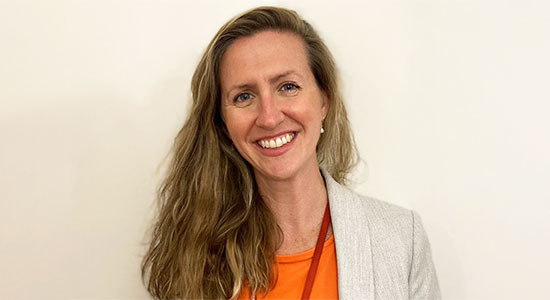Who is it for?
The Master of Disaster Management is a continuing education programme aimed at professionals from a wide variety of disciplinary backgrounds, such as risk managers, engineers, healthcare professionals, military officers, architects, social scientists, logisticians, and journalists.
The programme accommodates students with a bachelor’s degree and at least two years of work experience.
World renowned
The programme is world renowned, and we engage with leading professionals from many UN agencies, the Red Cross and Red Cresent Movement and many other humanitarian organisations.
Key Benefits
The Master of Disaster Management offers a holistic approach to disaster risk management, equipping you to:
- Navigate through a rapidly evolving and complex field of disasters, climate change and humanitarian action.
- Discuss and design relevant disaster risk management plans, and demonstrate a solid understanding of core humanitarian values.
- Contribute to building resilient societies due to reduce impacts of disasters and increasing problems of climate change.
- Make strategic evidence based decisions based on information gathered from diverse stakeholders.
- Communicate and collaborate effectively and sensitively with all parties involved.
Additionally, you will form a strong global network with fellow students, fostering interdisciplinary exchange.
Overview
Critical need for comprehensive disaster managers in all sectors
With the growing threat of impacts from disasters and humanitarian crises, expertise in disaster risk management is more crucial than ever. Climate change, urbanisation, conflicts, and societal inequity intensify the need for effective preparation, response, mitigation, climate change adaptation and recovery strategies.
Disaster risk management necessitates a multidisciplinary approach, involving a range of professionals and organisations. Embracing holistic risk reduction and climate change adaption enhances the effectiveness of disaster risk management and significantly reduces disaster losses and damages.
Choose between full-time or part-time study
The Master of Disaster Management is a one-year programme that can be completed as a one-year full-time programme or up to three years of flexible part-time study. You can also choose to enrol in just a single course.
Please note that the courses require full-time study, and you must be able to be absent from work during the periods when you attend courses. The duration of each course is approximately 4–5 weeks.
If you choose the flexible study programme, you have the option to distribute the courses over three years, allowing you to work during intervals between courses.
A holistic approach to disaster risk management and humanitarian action
On the Master of Disaster Management, priority is given to research-based teaching complemented by interdisciplinary practice-based exercises and activities such as teamwork, study visits to UN City in Copenhagen and other humanitarian organisations, discussions, and case studies.
Experience and knowledge exchange across disciplines are highly prioritised and considered crucial parts of the learning process and outcomes. They provide valuable insights into different stakeholders' approaches and processes, while also preparing for interdisciplinary collaboration. This holistic approach enhances strategic and effective cooperation in addressing climate change problems, escalating humanitarian emergencies and disasters.
Watch as two alumni share their student journey and experiences in the programme.
Continuous accreditation
The Master of Disaster Management is accredited by The Danish Accreditation Institution and undergoes continuous quality assurance processes by the University of Copenhagen.
The programme
Each ECTS credit is equivalent to 27.5 hours of study, which includes preparation, course activity, and exam.
| Onboarding | 0 ECTS |
|---|---|
| Orientation course | 0 ECTS |
| Compulsory courses | 30 ECTS |
| Introduction to Disaster Risk Management and Climate Adaptation | 7.5 ECTS |
| Preparedness and Response to Humanitarian Crises | 7.5 ECTS |
| Research Methodology and Ethics | 7.5 ECTS |
| Disaster Recovery Planning and Development | 7.5 ECTS |
| Elective courses - Choose two courses | 10 ECTS |
| Vulnerability and Risk Assessment Methods | 5 ECTS |
| Water Supply and Sanitation in Emergencies | 5 ECTS |
| Shelter and Settlements in Disasters | 5 ECTS |
| Geo Information in Disaster Situations | 5 ECTS |
| Health in Emergencies and Refugee Health | 5 ECTS |
| Master’s thesis | 20 ECTS |
| Master's Thesis | 20 ECTS |
Examination Schedules
Head of studies
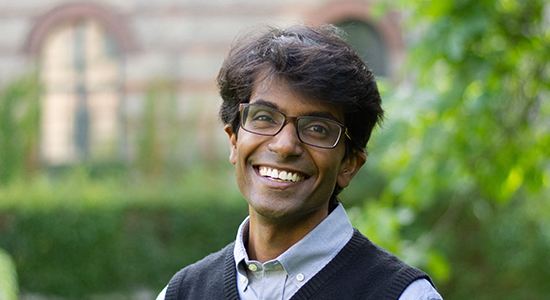
Emmanuel Raju
Associate Professor and Head of Studies
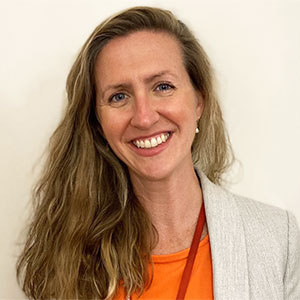
The concentrated study sessions gave me a great opportunity to travel to Copenhagen and focus 100% on the study.
Master's programme
EU, EEA or Swiss citizens: 125,500 DKK.
Non-EU, non-EEA, or non-Swiss citizens: 165,000 DKK.
Citizens from the EU, EEA, and Switzerland are eligible for reduced tuition fees according to EU legislation.
The full programme tuition fee is paid in instalments, one per semester, which must be paid prior to the start of the semester.
The fees for individual courses are listed under each course.
Funding
The University of Copenhagen does not offer grants or scholarships for the Master of Disaster Management. However, you can view other funding opportunities below:
You might consider financing parts of your tuition fees through the Gross Salary Scheme. A gross salary scheme is a tax advantage that allows you to include the tuition fee expense as part of your gross salary. In essence, the tuition fee will be deducted from your salary before taxes are applied.
If you are working in Denmark, you can learn more about the gross salary scheme (In Danish: Bruttolønsordning) at the Danish Tax Agency
If you are an US Citizen please be aware of the possibility of a student loan via the William D. Ford Direct Loan for American students.
Please also view our list of scholarships and loans by country.

Admission
The programme welcomes new students every year, with studies beginning end of August.
Admission criteria
Qualifying degree
All Bachelor's or Master’s degrees. The qualifying degree must be obtained from a recognised higher education institution in Denmark or abroad.
Work experience
You must have at least 2 years of relevant work experience after having completed the qualifying degree. Work experience must be full time (minimum 25 hours/week). In special circumstances, the admission committee can assess internship and volunteer work as professional work experience.
English proficiency
You must have a standard of English equivalent to level B in Danish secondary education.
Selection criteria
Eligible candidates are admitted on a first-come, first-served basis from the beginning of the application period.
Priority is given to students admitted on Master of Disaster Management. Once the enrolled students have been admitted to individual courses, the remaining seats are distributed on a first-come, first-served basis
Collect documentation for your application
An official certified diploma and transcript of academic records, with stamp and signature from your home university.
In case the original documents are not available in one of the following languages: Danish, Swedish, Norwegian or English, you are required to upload a certified translation with the copy of the original document.
A CV with your relevant work experiences which clearly states workplaces, specific work periods and job responsibilities.
You can document your English language proficiency in one of the following ways:
Native English language
Native English speakers from the USA, Canada, Australia, New Zealand, UK or Ireland may submit a copy of the page of their passport that has their photograph as proof.
Diploma from a Nordic university
Nordic applicants can demonstrate their English proficiency by submitting a certified copy of a high school diploma proving that they have passed English level B or by submitting a certified copy of a bachelor's or master’s diploma from a Nordic university.
Degree from an English speaking country
Applicants who have earned a bachelor’s or master’s degree from the USA, Canada, Australia, New Zealand, UK or Ireland can demonstrate their English proficiency by submitting a certified copy of their degree certificate if their degree was taught in English. A semester or year spent on a student exchange programme is not sufficient.
English working language
Applicants working in companies with English as the official working language can demonstrate their English proficiency by submitting a letter from their employer, on official headed paper, stating that their working language is English.
English language proficiency test
Applicants can demonstrate their English proficiency if they have passed a recognised English language proficiency test with an adequate score. We accept the following tests:
|
Name of test |
Minimum score |
Information required for online check of test |
|
IETLS (academic) IELTS Home Edition |
6.5 (overall test score) 6.5 (overall test score) Only overall score will be considered. |
TRF Number (Test Report Form Number) |
|
TOEFL
(MyBest Scores are not accepted) |
83 83 560 |
Registration number |
|
Cambridge Advanced (CAE) |
Passed at level C1 or C2 |
ID-number and Secret Number |
|
Cambridge Proficiency |
Passed at level C1 or C2 |
ID-number and Secret Number |
ELTS and TOEFL tests older than 2 years will not be accepted (counted from the programme application deadline). The Cambridge Assessment English may have been gained at any time.
For programme applicants a statement of motivation, 1-2 pages is required. For individual course applicants a brief statement of motivation is required.
In the statement, we advise you to
- Focus on the study programme and its content. Demonstrate understanding of the programme's structure.
- Outline your goals upon completing the programme.
- Highlight relevant qualifications and experiences and relate them to the programme.
- Explain how the Master of Disaster Management programme aligns with your career aspirations.
A copy of your passport (photo page) is required for non-Danish citizens. If you are a non-EU/EEA citizen with a permanent Danish residence permit, a copy of this permit must be uploaded.
The rules for Danish residence documents depend on your citizenship.
If you are admitted to the programme and require a visa and/or a residence permit, we will assist you in the application process. Please note that the visa application process can only begin upon receipt of the initial tuition fee instalment.
Read more about the rules for obtaining Danish residence permit and visas here.
Latest news from Copenhagen Center for Disaster Research - COPE
Nynke Schaap Interview: Adapting to Climate Change in Yemen
Interview with Christos Tsampoulatidis
Paris Agreement could help world avoid 57 hot days each year, study finds
Planetary Boundaries show rising risks and urgency to protect Earth’s life-support systems
Full Recording: Creative and Reflexive Methodologies for Critical Disaster Research webinar
Climate change tripled heat-related deaths in early summer European heatwave
Interview with Rico Kongsager
Sign up for the newsletter of Copenhagen Center of Disaster Research
Guidance and admission
Mariel de Guia Britanico
Programme Coordinator
Tel.: +45 35 32 71 95
Christine Gulstad
Study Administration Officer
lifelonglearning@adm.ku.dk
Tel.: +45 35 32 12 73
Master of Disaster Management
Continuing and Lifelong Learning
University of Copenhagen
Krystalgade 25
1172 Copenhagen K - Denmark

